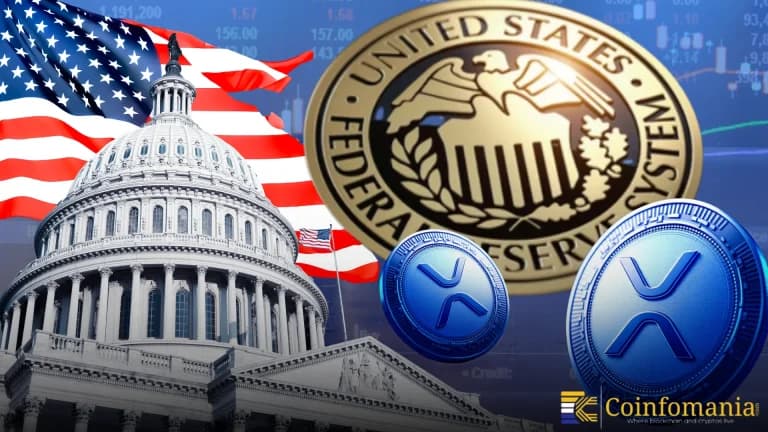Exploring the Synergies Between SEWA and Cryptocurrency in Tackling Africa’s Climate Challenges
SEWA enhances Africa's climate resilience, blockchain boosts data integrity, and DeFi offers innovative financial solutions.

Quick Take
Summary is AI generated, newsroom reviewed.
SEWA paves the way for blockchain-based carbon credits and decentralized finance (DeFi), fueling climate resilience investments.
Blockchain ensures transparency and trust in climate data, enhancing SEWA’s mission for better monitoring and decision-making.
SEWA’s infrastructure boosts Web3 investment in Africa’s green startups, fostering innovation and improving disaster relief efficiency through cryptocurrency.
As of 24 June, the African Union has initiated a truly transformational program, which is known as Space for Early Warning in Africa (SEWA). It is aimed at improving the climate change management capability of the continent. SEWA seeks to use satellite technology and other earth-observation data to enhance climate predictions and forecasts. The SEWA aims at safeguarding the socio-economic development through an effective early warning and climate system that would help African countries get better prepared to face the challenges of climate change. Although SEWA is largely a climate and environmental observation program, its effects may not be limited to the enhancement of climate resilience. This is especially in connection with cryptocurrency and blockchain technologies.
Blockchain Enhancing Climate Data Integrity
Accuracy and transparency of climate data are key elements in the success of SEWA. The nature of blockchain technology provides a solution to the issues of data integrity, transparency, and auditability. Nevertheless, the immutable ledger feature of blockchain technology will mean that when data is recorded, i.e., climate indicators, disaster alerts, or emissions reductions, it is immutable and cannot be removed or manipulated. This is a critical feature to ensure the climate data it brings is reliable. Moreover, this can build confidence in handling the climate-associated decision-making processes.
The blockchain platforms, such as ClimateChain and OpenEarth, have already embraced blockchain to monitor and verify environmental data. This further enhances the accuracy of the systems used to monitor the climatic conditions. Integrating blockchain technology, SEWA would be able to optimize the trust in climate data throughout Africa. Additionally, the blockchain ecosystem can monitor data in a precise and transparent manner, which might be helpful in supporting SEWA’s goals of achieving better climate monitoring.
Tokenized Climate Finance and DeFi Models in Africa
As SEWA increases, the ability of Africa to meet the challenges of climate change will be greatly boosted. This is more so in the arena of climate funding and disaster control. The ultimate beneficiary of the enhanced climate data offered by SEWA will be cryptocurrency-based financial models like tokenized carbon credits and decentralized finance (DeFi) to manage climate risk. Such cryptocurrency devices can become effective climate action acceleration instruments across France.
SEWA would facilitate the deployment of the blockchain-based carbon credits, where the African nations would be able to tokenize their emissions reductions. This forms a new market to trade in carbon credits. Further, it provides incentives to make investments in climate resilience activities. Such credits can be supported through the rightful information provided by SEWA, which is more credible and appealing to international investors.
Moreover, smart contract-based decentralized insurance services might allow immediate and cheap compensation for climate events like floods or droughts. Automatic claims can be made by SEWA with the help of the necessary weather data. This will help financial inclusion and rapid emergency financing to be reached in occupied populations, especially the small-scale farmers. The technology may revolutionize the approach to climate risk and disaster management in African countries.
Financial Inclusion and Web3 Investment in African Climate Startups
The second potential connection between SEWA and the crypto ecosystem is the possibility of cryptocurrency platforms helping provide financial inclusion in the case of the climate crisis. As SEWA already has its capabilities in early warning, cryptocurrency could facilitate future, cross-border payments. Projects such as the World Food Programme by the UN can use SEWA to target the areas where the assistance is most required.
In addition, the reinforcement of climate infrastructure, which is supported by SEWA, can bring investors of Web3 and crypto to the African green technology field. The blockchain being used in the global sustainability initiatives means the crypto-investors can contribute to the funding of the climate-resilience start-ups. The presence of SEWA has the potential to attract investments in Web3 and blockchain domains. This will eventually drive innovation in climate solutions on the African continent.
Follow us on Google News
Get the latest crypto insights and updates.


